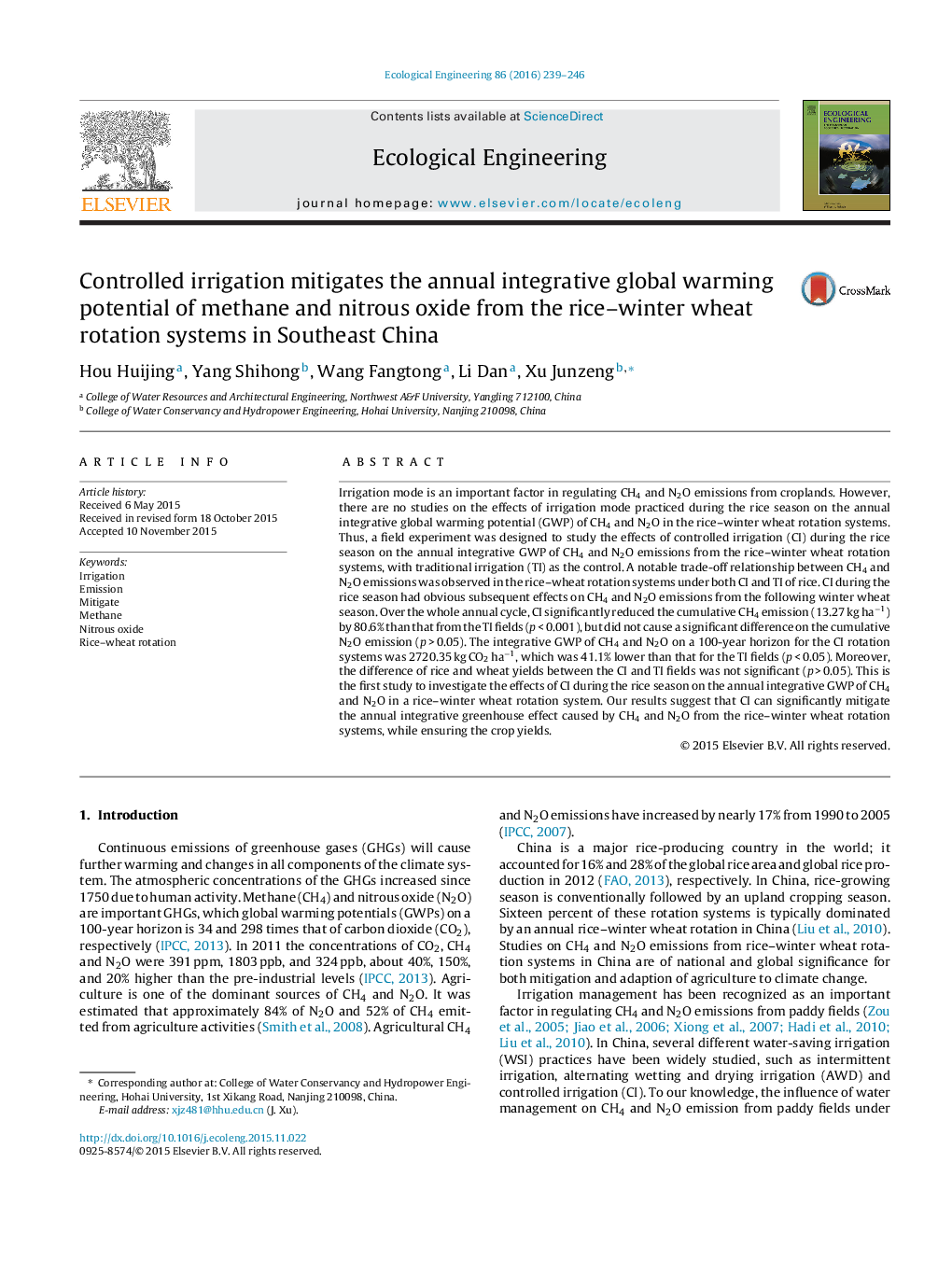| کد مقاله | کد نشریه | سال انتشار | مقاله انگلیسی | نسخه تمام متن |
|---|---|---|---|---|
| 4388935 | 1618013 | 2016 | 8 صفحه PDF | دانلود رایگان |
• CH4 and N2O emissions from rice–wheat rotation systems under CI were investigated.
• CI significantly reduced cumulative CH4 emission from rice–wheat systems.
• CI did not cause a difference on cumulative N2O emission from rice–wheat systems.
• CI significantly mitigates GWP of CH4 and N2O from the rice–wheat systems.
• CI did not cause a significant difference of crop yields between CI and TI fields.
Irrigation mode is an important factor in regulating CH4 and N2O emissions from croplands. However, there are no studies on the effects of irrigation mode practiced during the rice season on the annual integrative global warming potential (GWP) of CH4 and N2O in the rice–winter wheat rotation systems. Thus, a field experiment was designed to study the effects of controlled irrigation (CI) during the rice season on the annual integrative GWP of CH4 and N2O emissions from the rice–winter wheat rotation systems, with traditional irrigation (TI) as the control. A notable trade-off relationship between CH4 and N2O emissions was observed in the rice–wheat rotation systems under both CI and TI of rice. CI during the rice season had obvious subsequent effects on CH4 and N2O emissions from the following winter wheat season. Over the whole annual cycle, CI significantly reduced the cumulative CH4 emission (13.27 kg ha−1) by 80.6% than that from the TI fields (p < 0.001), but did not cause a significant difference on the cumulative N2O emission (p > 0.05). The integrative GWP of CH4 and N2O on a 100-year horizon for the CI rotation systems was 2720.35 kg CO2 ha−1, which was 41.1% lower than that for the TI fields (p < 0.05). Moreover, the difference of rice and wheat yields between the CI and TI fields was not significant (p > 0.05). This is the first study to investigate the effects of CI during the rice season on the annual integrative GWP of CH4 and N2O in a rice–winter wheat rotation system. Our results suggest that CI can significantly mitigate the annual integrative greenhouse effect caused by CH4 and N2O from the rice–winter wheat rotation systems, while ensuring the crop yields.
Journal: Ecological Engineering - Volume 86, January 2016, Pages 239–246
